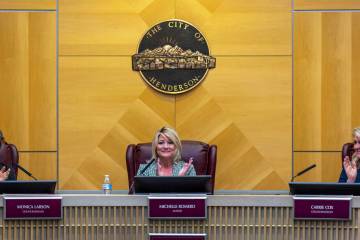EDITORIAL: Socialism vs. capitalism in South America
When one boxer dominates another, it’s easy to see. When one economic system dominates another, it can be harder to discern. But two countries in South America offer a compelling contrast.
Venezuela has some of the world’s largest oil reserves. For decades, its economic fortunes largely corresponded to oil prices. These petrodollars influenced and corrupted its political system. In 1958, its top three political parties signed a pact divvying up state jobs and oil money based on election results. In 1976, Venezuela nationalized the oil industry. Unsurprisingly, production fell, and Venezuela ended up allowing foreign investment again in 1997.
Governmental control of a previously private industry did little to stop corruption. A Venezuelan nonprofit estimated that the country’s leaders wasted or stole around $100 billion in the two-and-a-half decades before 1998. Venezuela’s poverty rate was 60 percent in 1998.
Venezuela then elected Hugo Chavez, who called for “21st century socialism.” He nationalized industries, including oil. If socialism produced the workers’ paradise that many ivory-tower academics claim it will, Venezuela should be widely successful. Instead, it’s a basket case.
After Mr. Chavez seized the means of oil production, Venezuela’s oil output fell by more than 50 percent over the next dozen years. Price controls led to shortages of basics such as soap, milk and even toilet paper. In 2018, the annual inflation rate was 1.3 million percent — not a typo. From 2012 to 2023, its GDP fell by 74 percent. Countries have endured civil wars that were less economically destructive than Venezuela’s embrace of socialism.
In 2023, Argentina had its own problems. Its poverty rate was 40 percent. Inflation was more than 135 percent. In a vain attempt to control inflation, its central bank boosted interest rates to 133 percent. It faced a shrinking economy.
But instead of more socialism, Argentina elected Javier Milei, who champions free markets. He took a figurative chain saw to public spending. He fired thousands of government workers and eliminated whole departments. He slashed regulations. He abolished rent control.
Mr. Milei warned that his reforms would cause short-term pain before the long-term gain. His tough medicine is paying off. Monthly inflation recently fell below 2 percent for the first time since 2020. In the second quarter this year, Argentina’s economy grew at a 7.6 percent annual rate. After ditching rent control, the number of rental properties soared while rents dropped.
Argentina hasn’t fixed all its problems, but Mr. Milei’s free-market reforms have put it on the right track.
Socialism led to a once-rich country running short of toilet paper. Capitalism has put a struggling country on a path to prosperity. Again, the free market wins in a knockout.

















